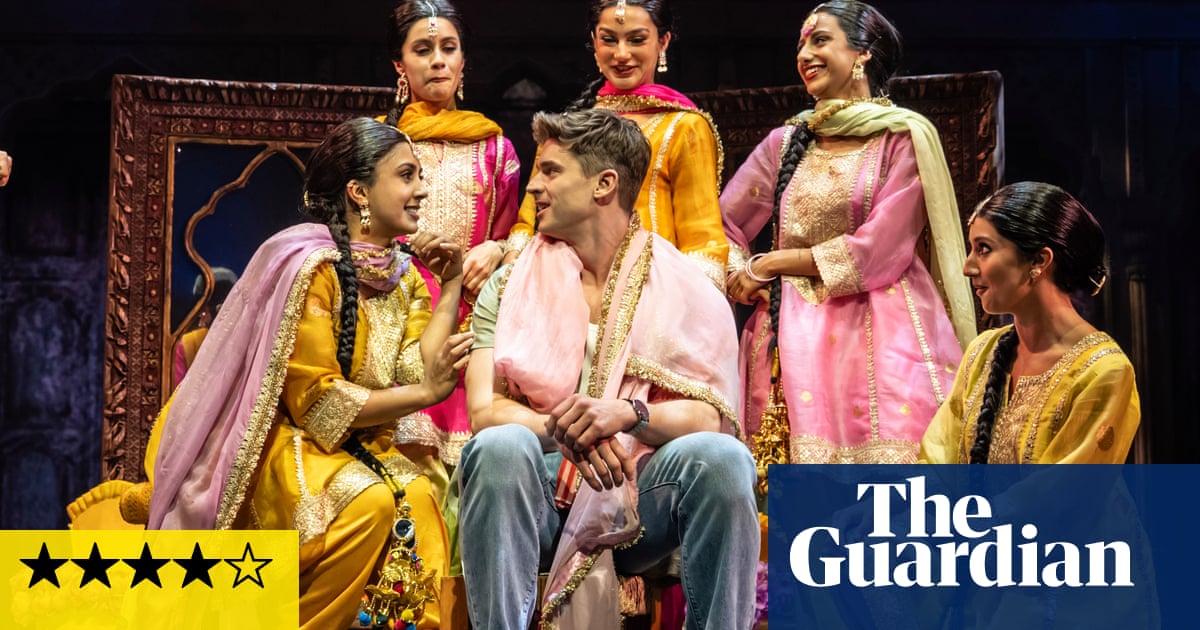On its release in 1995,Bollywoodblockbuster Dilwale Dulhania Le Jayenge (DDLJ to its fans) spawned a new genre of Hindi film. A star-crossed romance about London-dwelling young adults Raj and Simran, the three-hour epic explored the lives of a new generation of diaspora Indians born abroad and navigating changing family values.
Thirty years on and DDLJ has become one of the highest grossing Bollywood movies of all time, still screening at the Maratha Mandir cinema in Mumbai. For the many fans used to singing along to its songs on wedding dancefloors, director Aditya Chopra’s stage adaptation will come as a surprise.
With new music from Bollywood production duo Vishal-Shekhar and an updated story by Mean Girls co-writer Nell Benjamin, Come Fall in Love supplants Punjabi boy Raj with all-English “Rog” (Roger) to produce a multiracial take on the diaspora tale.
The racial dynamics and narrative beats are broad-brushstroke. Billionaire progeny Roger (Ashley Day) is the son of divorced parents and doesn’t believe in lasting love, while straight-A student Simran (Jena Pandya) is a second-generation immigrant striving for an immaculate romance while promised to a family friend in Punjab. The pair are an unlikely couple, until they find themselves Interrailing around Europe and sparks fly.
So far, so predictable. Yet, Day and Pandya have an undeniable chemistry, flitting around one another with nimble coyness and furtive passion, leaving the audience rooting for their inevitable love. Rob Ashford and Shruti Merchant’s choreography is equally engrossing, making full use of the ensemble cast to dart around and leap over Derek McLane’s intricate set, while standout solo performances come from Kinshuk Sen as clowning fiancee Kuljit and Kara Lane as Rog’s mother, Minky, in the raucous number Hot and Independent and Hot.
Vishal-Shekhar’s bhangra, reggae and disco music may not reach the melodramatic peaks of the original film’s yearning melodies but closing number Holi Hai is infectiously celebratory, leaving the audience on their feet. It is testament to the fact that while Come Fall in Love isn’t the most nuanced or complex investigation of diaspora identity, it is joyously loud and kitsch, expertly embodying the tenets of the Bollywood art form.
AtManchester Opera Houseuntil 21 June
